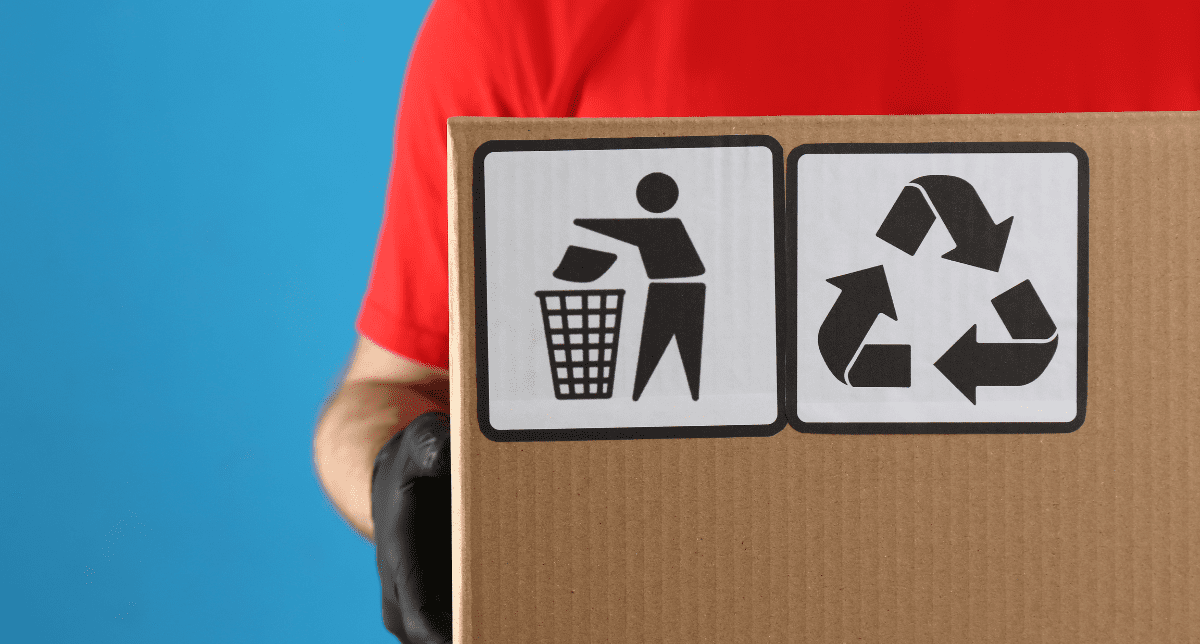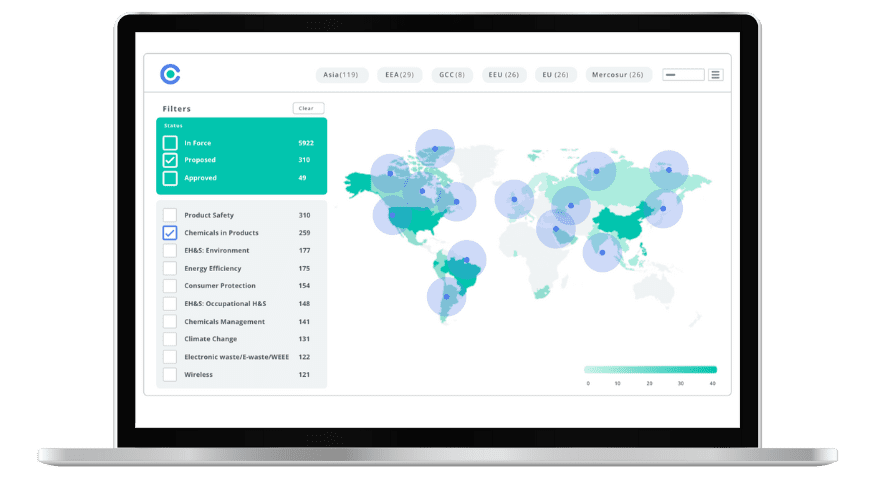
Packaging EPR Expansion: New Developments Across the U.S.

This blog was originally posted on 26th May, 2025. Further regulatory developments may have occurred after publication. To keep up-to-date with the latest compliance news, sign up to our newsletter.
AUTHORED BY RUAN DOHERTY, REGULATORY ANALYST, COMPLIANCE & RISKS
Despite the lack of federal legislation, US states are accelerating efforts to implement Extended Producer Responsibility (EPR) programmes. In just the first half of 2025, key legislation has been signed in Maryland and Washington, joining five other states that have enacted packaging EPR laws, while California and Oregon continue refining and expanding their EPR frameworks. Furthermore, a wave of draft bills is sweeping through various states from New York to Hawaii, signaling a pivotal shift towards comprehensive, producer-led solutions for packaging waste.
This blog explores the latest legislative milestones, key implementation timelines, and the evolving landscape of packaging EPR programmes across the US.
Two more states join the EPR movement
Maryland
On May 13, 2025, Maryland’s Governor signed Senate Bill 901 into law, strengthening the states’ initial focus on an EPR study bill to a fully fledged programme.
Key actions include:
- July 1, 2025: date of entry into force of SB 910;
- July 1, 2026: a PRO shall file a registration form with the state Department of the Environment noting participating producers and their covered materials;
- July 1, 2027: the Department establishes a statewide list of recyclable or compostable packaging materials;
- July 1, 2028: producers shall submit, individually or as part of a PRO, a producer responsibility plan; and
- July 1, 2029: producers/PRO shall submit an annual report on progress.
Washington
On May 17, 2025, Washington state’s Governor signed Senate Bill 5284 into law, following six attempts by the state legislature to pass packaging EPR legislation.
Key actions include:
- January 1, 2026: producers must appoint or join a Producer Responsibility Organization (PRO) to address their covered materials;
- July 1, 2026: producers must either be a member of a PRO, or register as a PRO that will implement an individual plan;
- End of 2026: initial statewide collection lists and needs assessment will be established by the Department of Ecology;
- October 1, 2028: a PRO shall submit stewardship plans to the Department for approval; and
- March 1, 2029: producers that aren’t registered with a PRO may not introduce covered materials in the state.
Developments within EPR programmes
California
On May 16, CalRecycle revised the draft regulations to implement Senate Bill 54, following the governor’s rejection of the initial version. The revised regulations include refined “producer” definitions, updated material categories and thresholds, and a new producer registration deadline of September 2, 2025. The implementation timeline has also been revised, with the first producer report (2023 data) due by November 15, 2025. Comments may be submitted until June 3, 2025.
Oregon
Also on May 16, Circular Action Alliance proposed to amend the approved EPR programme plan to add a ‘Bonus C’ incentive for shifting to reusable packaging, completing eco-modulation framework consisting of environmental disclosures, impact reductions, and reuse. Comments may be submitted until June 27, 2025.
Current proposals on the table
This year, a further 10 states have proposed new packaging EPR legislation, or are still reviewing draft legislation from prior years. The legislation ranges from study bills and reforms of current programmes, to the implementation of full EPR programmes.
Here is a breakdown of the bills proposed in 2025 so far:
- New York (SB 1464/AB 1749SB and SB 5062/AB 6191): two pairs of bills currently being considered, with a needs assessment also underway. SB 1464/AB 1749 requires producers to register with a packaging reduction organization, set phased targets for reducing packaging and increasing recycled content, and ban certain chemicals. In comparison, SB 5062/AB 6191 proposes a more flexible, industry-supported EPR framework modeled after Minnesota.
- New Jersey (AB 5009): requires a state needs assessment and outlines certain source reduction and recyclability requirements.
- Connecticut (HB 6917): mandates a study on the feasibility of packaging EPR by January 2027.
- Massachusetts (HB 571): requires a state needs assessment and aims to establish combined reduction and recycling rates.
- Rhode Island (HB 6207): introduces packaging EPR and a deposit return system.
- Illinois (SB 1817): creates ‘The Extended Producer Responsibility and Recycling Refund Act’, but is currently only a placeholder bill.
- Nebraska (LB 607): includes the EPR Data Collection Act, requiring producers to pay annual fees and report material volumes starting in 2026 and 2027.
- Hawaii (HB 1264): proposes an EPR programme for all packaging types, requiring producers to pay annual fees to fund a plan targeting a 50% reduction in landfill-bound packaging.
- North Carolina (HB 882): establishes EPR for packaging and bans certain substances, including PFAS, from packaging materials.
- Tennessee (SB 269/HB 600): focuses on the economic benefits of packaging EPR and provides more control to producers.
Stay Ahead Of Regulatory Changes in Extended Producer Responsibility for Packaging
Want to stay ahead of regulatory developments in Extended Producer Responsibility for Packaging?
Accelerate your ability to achieve, maintain & expand market access for all products in global markets with C2P – your key to unlocking market access, trusted by more than 300 of the world’s leading brands.
C2P is an enterprise SaaS platform providing everything you need in one place to achieve your business objectives by proving compliance in over 195 countries.
C2P is purpose-built to be tailored to your specific needs with comprehensive capabilities that enable enterprise-wide management of regulations, standards, requirements and evidence.
Add-on packages help accelerate market access through use-case-specific solutions, global regulatory content, a global team of subject matter experts and professional services.
- Accelerate time-to-market for products
- Reduce non-compliance risks that impact your ability to meet business goals and cause reputational damage
- Enable business continuity by digitizing your compliance process and building corporate memory
- Improve efficiency and enable your team to focus on business critical initiatives rather than manual tasks
- Save time with access to Compliance & Risks’ extensive Knowledge Partner network

Packaging Labeling Legislation in Europe: A 2025 Regulatory Update
This whitepaper provides a comprehensive overview of current packaging labeling requirements across Europe.


